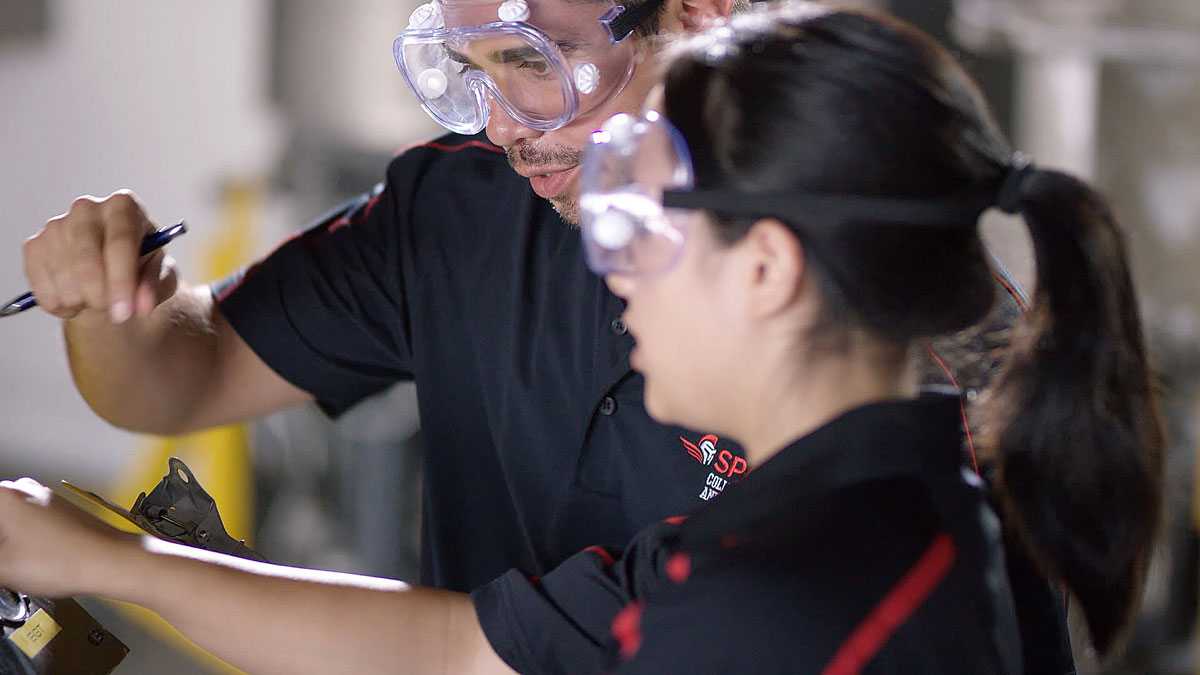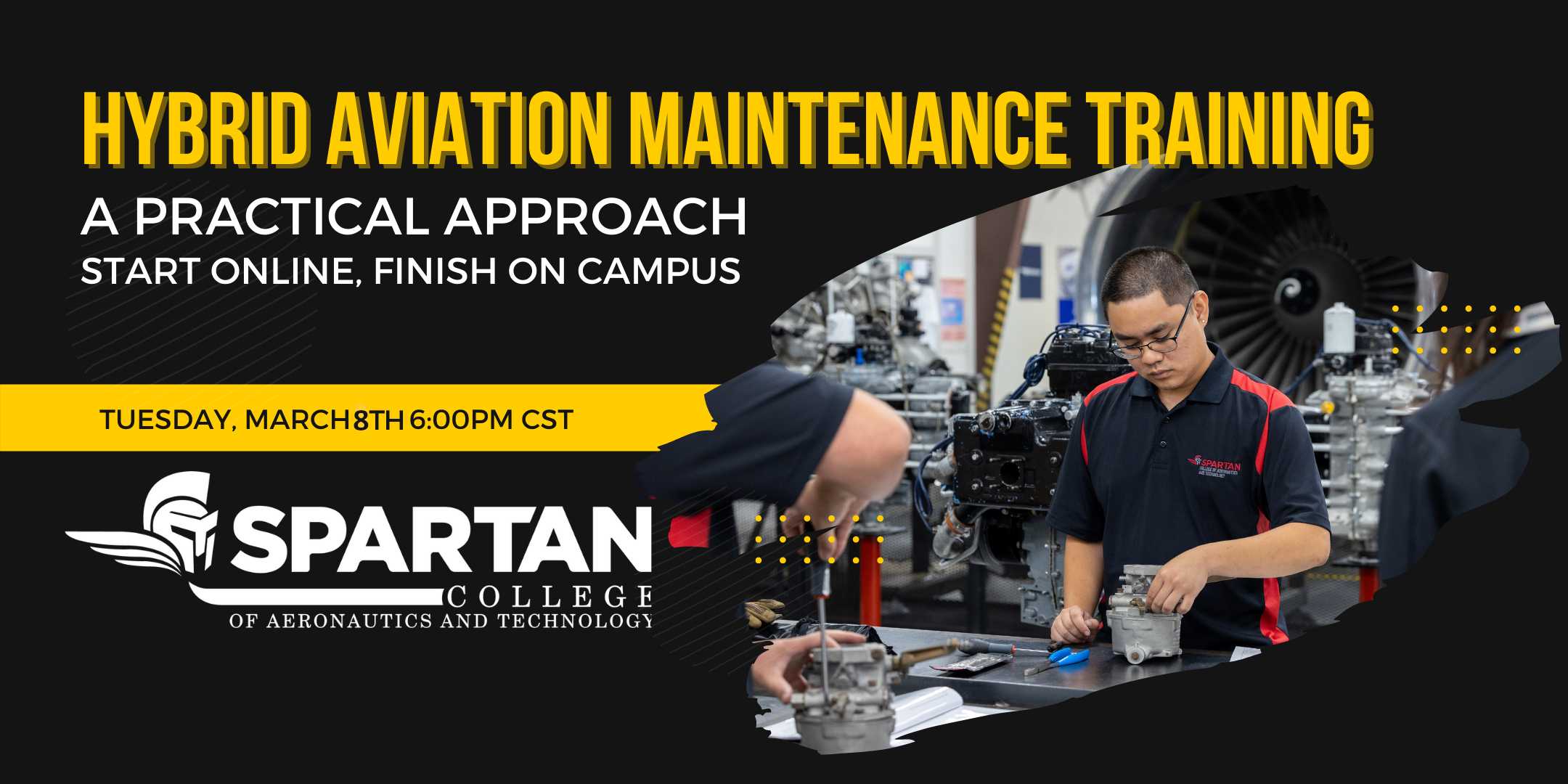Partially Online Aviation Maintenance Technology
Aviation Maintenance Technology - Hybrid Option
Aviation Maintenance Technology - Hybrid Option
Training the Next Generation of Aviation Maintenance Technicians
Are you always busy? Our Aviation Maintenance Technology online option is designed to be manageable even if you are working or you have a busy schedule. With our online training option, time on ground at our Tulsa campus is reduced to only 8 months. Are you active in the service? This program allows existing military personnel to train in-person in less than half the time traditionally required to prepare for Airframe & Powerplant Certification after leaving active duty.
Training in our airplane mechanic program not only prepares you to earn your certification as an aircraft mechanic, but it can also provide you with a versatile skill set that is desired in other industries.
Interested in Learning More?

Program Details
Aviation Maintenance Technology – Hybrid Option(Diploma)
20 Months: 12 months online, 8 months on-ground
Associate of Applied Science Aviation Maintenance Technology – Hybrid Option (Degree)
23 Months: 12 months online, 8 months on-ground, 3 months of Gen Eds online or on-campus
Successful completion qualifies Spartan College graduates to take the written, oral, and practical tests with the Federal Aviation Administration for the Mechanic’s Certificate with both Airframe and Powerplant ratings.
Spartan College’s partially online aviation maintenance program is meant to be manageable even if you are working full-time or you are finishing up active duty in the military. For international students, the partially online Aviation Maintenance program provides the option of living in your home country for the first part of the program (providing you with a flexible schedule) then relocating to Tulsa, Oklahoma for the second on-campus portion. Before applying, ensure that you’re in a state eligible for our online program: Distance Education State Authorization List
Course Work
Part of the Demand for Airline Technicians
according to the Boeing Pilot Technician Outlook 2021 – 2040.
*Boeing: Pilot and Technician Outlook, http://www.boeing.com/commercial/market/pilot-technician-outlook/
Sample Classes
In this class students will discuss and apply and overhaul procedures and techniques as they apply to an aircraft reciprocating engine. Student will inspect and repair engine components in accordance with manufacturers generally accepted procedures. Students will also discuss engine exhaust systems, and engine cooling systems.
In this course, aircraft sheet metal structures and different fastening methods are studied in detail. Students will accomplish a wide variety of lab projects leading to an understanding of subject material. Upon successful completion of this course, students are expected to be able to perform all basic tasks required of an aircraft maintenance technician related to metallic structures.
The theory, operation, and maintenance of aircraft hydraulic and pneumatic systems are covered. The troubleshooting, maintenance, and repair of both systems is stressed. Aircraft landing gears, including retraction systems, oleos, brakes, wheels, and tires, are also studied. This course also includes study of aircraft position and warning systems.
A&P Certification (Airframe & Powerplant License)
An Airframe & Powerplant certification, also known as the A&P License, is required for those who inspect, maintain, and repair aircraft. In Spartan’s aviation maintenance program hybrid online option, we can provide you with the hands-on aircraft maintenance training and knowledge needed to obtain your FAA A&P License. You can also gain confidence and interview skills by working with our career services team.
Before applying, ensure that you’re in a state eligible for our online program: Distance Education State Authorization List
Student Benefits:
- Perfect for those with plans to transition out of their current industry or require flexible schooling. 12 months of distance education and 8 months in Tulsa when you transition for an associates degree, then an additional 3 mos online or onground for the remaining degree courses.
- Get a jump start on training
- Those coming out of armed forces with training can be evaluated for possible credits
- Cut your time in the classroom in half! Spend just 8 months on campus rather than 17-20 months.
- Students will use a web-based learning management system to get access to classes and work assignments.
- The online portion of the program enables schedule flexibility. You can do your work at night after work, on weekends, or whenever your schedule best allows.
- Save commute time. You only have to go to campus for 8 months instead of 17-20 months with our traditional program.
